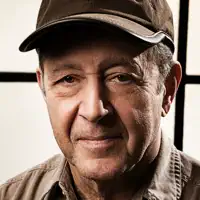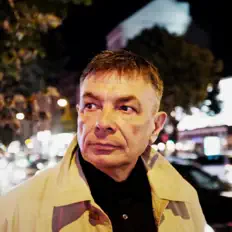
Electronic
Germany
Kraftwerk
On Tour
Upcoming Concerts for Kraftwerk
See All Concerts
Kraftwerk currently has 23 upcoming concerts; the next one is scheduled for Tuesday, November 11, 2025 at Parkplatz Meistersingerhalle Großer Saal in Nürnberg, BY, Germany.
More albums from Kraftwerk
About Kraftwerk

Hometown
Düsseldorf, Germany
Formed
1970
Genre
Electronic
Long before computers became commonplace in recording studios, Kraftwerk invented the idea of a post-human musical future. The German group didn’t set out to be electronic-music pioneers: Founding members Florian Schneider and Ralf Hütter met as conservatory students in Düsseldorf in the late ‘60s, and their self-titled 1970 debut as Kraftwerk—German for “power plant”—was in keeping with the shaggy avant-rock of the late ’60s. But postwar Germany was modernizing rapidly, a process Kraftwerk captured in their increasingly streamlined music. On 1974’s Autobahn, the group channeled the nation’s freeways—a metaphor for freedom—into sleek, hypnotic grooves, including a 22-minute title track that sounded like infinity distilled. Synths and programmed rhythms increasingly came to the fore, and the group’s influence grew: Trans-Europe Express, from 1977, introduced textures and pulses that would soon ripple across nascent American hip-hop and Detroit techno, while 1978’s The Man-Machine drew the robotic blueprint for synth-pop and New Wave. While new material slowed in the following decades, the group remained active across various lineup changes, masterminding new audiovisual techniques in their extensive tours (which continued under Hütter’s direction even after Schneider’s death from cancer in 2020). Kraftwerk’s legacy is incalculable; their synthetic DNA is a part of dance music, pop, rap, and virtually every style of music that requires a power adapter.
Members of Kraftwerk include, or have included, Karl Bartos, Emil Schult, Florian Schneider, Michael Rother, Klaus Dinger, Fritz Hilpert, Wolfgang Flür, Eberhard Kranemann, Henning Schmitz, Fernando Abrantes, and Falk Grieffenhagen.
Musical InfluencesKraftwerk's musical influences include Steve Reich, The Velvet Underground, Terry Riley and more.
Influenced by KraftwerkKraftwerk has influenced the music of Depeche Mode, Talking Heads, a-ha and more.
Similar to: Kraftwerk
Discover more music and artists similar to Kraftwerk, like Karl Bartos, Yellow Magic Orchestra, Depeche Mode












































